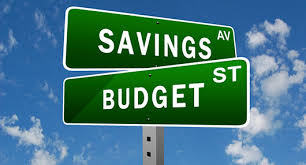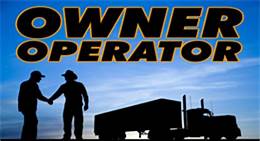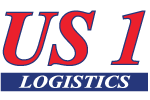Setting up your Finances as an Owner Operator
Becoming an owner operator is not an impossible task but you must prepare for it. Just like any small business you must prepare.
The first thing you need to do is set up your new small business as a separate entity. Yes, I  did say your new small business. As an owner operator you are an independent contractor running your own small business. For insurance and tax reasons you should set your new company up as an ‘LLC’ or an ‘S’ corporation. These types of entities give you some protection in case of a lawsuit, which in the transportation industry is a big deal.
did say your new small business. As an owner operator you are an independent contractor running your own small business. For insurance and tax reasons you should set your new company up as an ‘LLC’ or an ‘S’ corporation. These types of entities give you some protection in case of a lawsuit, which in the transportation industry is a big deal.
You can probably get a local general attorney to handle this for you. Another option is using an online service like legalzoom.com, BizFilings.com or swyftfilings.com. There are others, I just threw those out there to give you an idea.
Both LLC and S Corporations give you protection as the owner from business liabilities and debts. They create a separate legal entity recognized by the state. But are typically considered to be pass-through tax entities, meaning that income tax is paid by the owner not the corporation. This is what you want. With a C corporation the company would have to pay income tax as well as the owners.
What are some of the differences between the LLC and S corporations?
LLC’s can have unlimited owners while an S corporation is limited to 100 owners.
Non US Citizens can be an owner of an LLC. With an S corporation you can only have US Citizens.
An S corporation cannot be owned by a C corporation, another S corporation or an LLC. LLC’s can be owned by other entities.
LLC’s have less formal operating requirements.
With an S corporation you must have (and prove you had) meetings about adopting bylaws, issuing stocks, elect directors, hold annual and special meetings and keep minutes of the meetings. These type things are recommended in an LLC but not required.
Speak with your lawyer before deciding which type of entity to set up. We have used LLC’s the most because they are the easiest to set up it and manage as an owner operator.
The second thing you need to do is set up a bank account for your new small business. You must set your finances up as a small business and not mix your personal and business funds. Place all your income from your business activities in this account. Pay all of your expenses out of this account. You can write yourself ‘paychecks’ out of your business account. We recommend a flat weekly salary. At the end of the year you can always give yourself a ‘bonus’ if funds are available.
We also HIGHLY recommend setting up a business savings account as a different account. More on what you will use that for below.
We also recommend getting a good accountant (or bookkeeper) right from the start. Your accountant can help you set up your ‘books’ and preparing for tax filing right from the beginning. It is always easier to set everything up right from the beginning as opposed to paying catch up later and trying to find all your receipts.
If you have some general accounting experience you might be able to handle the month to month duties of a bookkeeper yourself, but you will still need a good tax person. Business taxes can be quite complicated and change often. You are much better off working with a professional than buying TurboTax and trying to figure it out yourself. One of the biggest problems we have seen owner operators run into is not properly completing, filing and paying their income tax.
Another part of what we consider to be basic finance set up is planning for your known expenses.
Some of these might be paid for by your company; if so, just ignore them.
Each year you will have to pay your 2290 before you can purchase a tag. It is due the end of July an right now cost $550.00 per year. We suggest your save for this monthly and move about $50.00 per month into your business savings account.
Each year you will have to purchase your tag. These vary from state to state but let’s assume it is $2,000.00 per year. We recommend saving monthly for this an putting $175.00 per month into your business savings account.
Repair and maintenance is going to be your biggest expense (other than fuel) on a yearly basis. There are a lot of different ways you can estimate your ongoing repair and maintenance expense. Just as a starting point we would suggest accruing about $.15 per mile (perhaps more if you have a trailer) for repair and maintenance. As you get a better idea of how much your repair and maintenance are costing you then adjust. Remember however you are not just saving for minor repairs and oil changes, you are also saving for engine rebuilds and tire replacement.
Therefore, your repair and maintenance account should grow quickly and get quite large. I would normally save at least to a $20,000.00 level before I reduced my accrual. Initially I would resist the urge to take money out of your repair and maintenance savings for smaller repairs. You really need to build this account to pay for tires, engine repairs, transmission repairs, turbos and other large repair items. Don’t take money out of your repair and maintenance to replace wiper blades or headlights.
We recommend moving money weekly to your business savings for repair and maintenance. If you are using a mileage calculate then each week add up your miles and multiply by your per mile savings amount and then put that money into your savings.
Each month you will have a truck payment (and maybe a trailer). We recommend taking that monthly amount and multiplying it by 12, the divide by 50 (yes 50, not 52). This will give you a weekly deduction amount to put in your business savings each week. So if your monthly payment is $1,800.00 then you would multiply that by 12 to get $21,600.00. Then divide by 50 to get your weekly deduction amount of about $435.00. Each week move $435.00 to your business savings account.
We use 50 instead of 52 to give you a little extra each year in your savings account for emergencies.
DO NOT forget to save for income taxes. Normally you will have to pay quarterly tax payments. The first year  you might not but you should still save for your yearly income tax liability on a monthly basis at least. Weekly if you prefer. Your accountant can help your determine what this amount will be. Just DO NOT forget to save for income taxes. If you do you WILL be sorry.
you might not but you should still save for your yearly income tax liability on a monthly basis at least. Weekly if you prefer. Your accountant can help your determine what this amount will be. Just DO NOT forget to save for income taxes. If you do you WILL be sorry.
There are other expenses you will have to prepare for. If they are less than $2,000.00 per year we recommend saving for them on a monthly basis. If they are more than $2,000.00 per year then we recommend saving for them on a weekly basis.
Remember, you are STARTING a new small business. This means you are not going to make a fortune at first. You might even find that your take home pay is less than it was as a company driver the first year. If you do things correctly this is normal. You MUST build up your business savings the first year.
Pay yourself a salary that will keep you a float. Keep everything else in your business savings to build your repair and maintenance fund. Starting year two you should be able to take out more money as salary or perhaps a year end bonus if you are ahead of schedule in your savings.
Another way you make money as an owner operator is by paying off your equipment over time. Remember, eventually your truck (and trailer) will be paid off and those payments will go away but they will still have value. This is equity you have in your business.
Let us know what questions or comments you have. We like to hear from our readers and write about the things they want to know about.
There are some good owner operator opportunities out there. Find the one that is right for you.




Recent Comments